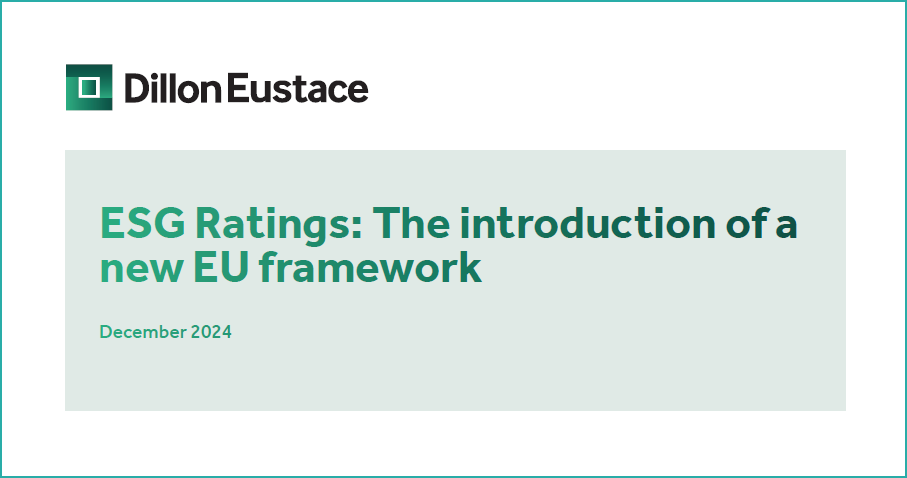EU Platform on Sustainable Finance Unveils Proposals to Simplify, Expand EU Taxonomy
In January 2025, the Platform on Sustainable Finance (PSF), an expert group established by the European Commission, launched a consultation paper proposing updates to the EU Taxonomy. The document details efforts to simplify and expand the classification system for identifying sustainable economic activities. The proposed updates aim to improve the usability of the Taxonomy, focusing on new activities like digital solutions and the mining of lithium, nickel, and copper.

In January 2025, the Platform on Sustainable Finance (PSF), an expert group established by the European Commission to advise on sustainable finance policies, launched a new consultation paper detailing proposed updates to the EU Taxonomy. These proposals aim to simplify and expand the classification system for identifying sustainable economic activities. The consultation document outlines key recommendations and invites stakeholders to provide feedback on the suggested changes.
To find out more, click here to access the draft report and consultation.
Purpose of the EU Taxonomy and Platform’s Mandate
The EU Taxonomy is part of the EU Action Plan on Sustainable Finance, providing a framework for categorising economic activities that contribute to at least one of six environmental objectives, while ensuring they do no significant harm (DNSH) to the others. These objectives include climate change mitigation, adaptation, protection of water resources, transition to a circular economy, pollution prevention, and the preservation of biodiversity.
As part of its current mandate, the PSF is tasked with reviewing technical screening criteria for activities included in the Climate Delegated Act (DA), which came into effect in 2022. This review includes an emphasis on transitional activities, which are subject to a review every three years as stipulated by the Taxonomy Regulation. The PSF’s report also outlines the development of new technical criteria for activities contributing substantially to at least one of the Taxonomy’s environmental objectives.
Key Elements of the Report
The PSF’s new draft report includes recommendations to enhance usability and expand the scope of the Taxonomy. The report reflects extensive consultation with stakeholders, including companies, which have expressed a desire for simpler application of the DNSH criteria and for more activities to be included within the Taxonomy. Additionally, the PSF focuses on improving the usability of DNSH criteria for new activities, and it also scrutinises the existing criteria under the Climate Delegated Act.
The report proposes the inclusion of new activities in the Taxonomy, such as digital solutions and services, as well as the mining and smelting of lithium, nickel, and copper.
Recommendations for Key Areas
The report makes several recommendations aimed at improving the implementation of the EU Taxonomy, including:
- Enhancing the usability of the climate change adaptation criteria;
- Harmonising activity titles and descriptions for better consistency across mitigation and adaptation objectives;
- Reviewing and updating DNSH criteria based on new scientific results and technological developments;
- Addressing inconsistencies in DNSH criteria for specific activities;
- Proposals for new activities with substantial contributions to all four objectives of the Environmental Delegated Act, such as digital solutions, mining, and research and development activities.
In addition to the proposed updates, the PSF highlighted usability challenges with the Taxonomy, particularly around the DNSH criteria. A report published in February 2024 assessed how stakeholders, including businesses and financial institutions, interact with the Taxonomy, identifying DNSH as a major obstacle. Based on these findings, the PSF recommends clarifying these criteria and making them more applicable for activities outside the EU, ensuring a smoother and more streamlined reporting process in the future.
Conclusions and Implications for Businesses
The proposed updates are set to create a more efficient and transparent reporting system for businesses, with improved access to reliable, comparable data. Companies can benefit from:
- Improved Investor Trust: Enhanced data accessibility leads to stronger investor relationships;
- Operational Efficiency: Harmonised frameworks reduce duplication and simplify compliance;
- Market Competitiveness: Early adoption of the updated standards provides a competitive edge in sustainability and transparency.
While there may be challenges in implementing the new standards, the gradual implementation plan outlined by the PSF provides a structured approach to help businesses transition smoothly.
By refining the Taxonomy and addressing key usability issues, the EU is solidifying its commitment to sustainable finance and providing a clearer path for companies to align their activities with environmental objectives.



